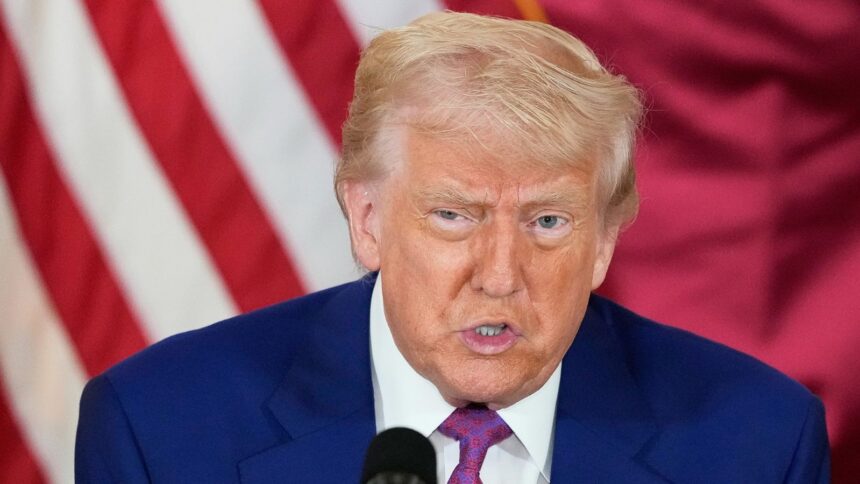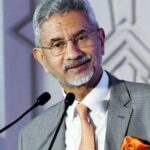US President Donald Trump said he has told Apple CEO Tim Cook that he does not want the company to expand its manufacturing operations in India, unless it is to cater specifically to its domestic market. He also claimed that India has “offered to drop all tariffs” on the United States.
“I had a little problem with Tim Cook yesterday. I said, ‘Tim you’re my friend, I’ve treated you very good, you’re coming here (in the US) with a $500 billion announcement, and now I hear you’re building all over India. I don’t want you building in India. You can build in India if you want to take care of India, because India is one of the highest tariff nations in the world’” Trump said after a meeting with business leaders between the US and Qatar.
Trump’s comments come at a time when Cook has confirmed that owing to China-related trade uncertainties, the company will produce a majority of iPhones sold in the US in India in the June quarter. wants to move a quarter of all iPhone production to India in the next few years, in a gradual move away from China, which has so far been the key epicentre of the company’s manufacturing prowess.
However, since Cook made this comment earlier this month during a call with investors after announcing the company’s financial results, there has been a significant development – after initial escalation between the US and China over tariff rates, the two have reached a trade deal.
This comes as trade tensions between the US and China had started benefiting India, with US buyers turning to Indian suppliers following the imposition of 145 per cent tariffs by the US on Chinese goods.
It was widely anticipated that because of significantly higher tariff rates on China, companies like , where Apple has developed a sizable assembly base. Any potential thaw in US-China relationships could pose a challenge to the expected migration of supply chains to India.
However, the Indian government is currently not as worried about the truce between US and China, as it believes that Apple’s migration to India was not induced by any tariff-related pressure, but well before that in 2020 due to New ’s growing ambition to become a global manufacturing hub for electronics.
Although, it remains unclear how supply chains of companies like Apple would react if the trade deal between the US and China gives a significant relief on the tariff front to Beijing. China’s technological prowess and skilled human resource in the electronics sector is generally considered to be significantly better than India’s.
What is clear, however, is that the improving trade relationship between US and China is not good news for mandarins in New Delhi.
Apple doubled down on production in India in 2020, after the Indian government announced its production linked incentive (PLI) scheme for smartphone manufacturing, under which it was to subsidise manufacturers depending on the amount of their incremental sales. While the company started by making some of its older iPhones in India, today it produces all models, including the higher-end Pro range for global consumption.
Apple, through its contract manufacturers, has been the biggest beneficiary of the scheme, which has helped it move some production away from China. The company started with three contract manufacturers here – , Wistron and Pegatron – and the latter two have now been acquired by the Group.
Apple and its manufacturing partners have been the biggest beneficiaries of subsidies under the PLI scheme for smartphones. had earlier reported that, under the scheme, the government has disbursed close to $1 billion in the three years from 2022-23 to 2024-25, with the three contract receiving cumulatively over 75 per cent of the amount.
Apple’s contract manufacturers, Foxconn, Tata Electronics and Pegatron (which was recently acquired by the Tatas), have received a total of almost Rs 6,600 crore over three years — 2022-23 and 2024-25.
In 2023-24, Foxconn, which is Apple’s biggest contract manufacturer globally, received a subsidy disbursal of Rs 2,450 crore, the highest during the year. However, in 2024-25, the data showed no incentive was issued to Foxconn. In 2024-25, received the highest subsidy of close to Rs 958 crore.








